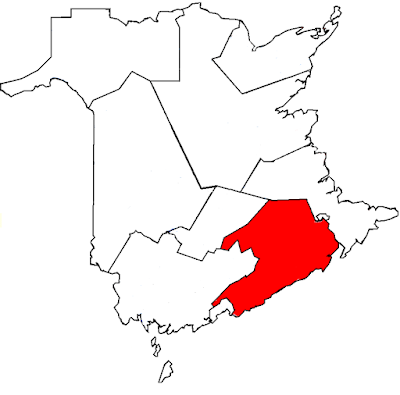I'm a vocal critic of first-past-the-post elections, but I acknowledge how un-enthusiastic most Canadians are to change that system. My sixth Advent Policy Brief advocates a multi-member federally contiguous (MMFC) electoral system in the province of New Brunswick and no further.
Let's elect multiple MLAs from 10 provincial ridings contiguous with federal ridings (perfectly overlapped). An MMFC election would have MLAs list-elected from each riding, forming that riding's (unofficial) caucus. Given the 49 MLAs in the legislature, electing 5-member riding caucuses for a total of 50 MLAs is intuitive.
Federal ridings are redrawn every 10 years to reflect shifts in demographics. New Brunswick has 49 provincial ridings; those ridings are redrawn after every 2 general elections. Both processes are exhaustively consultative and strictly regulated. Fiscal watchers can get on board with MMFC because it eliminates the expense of duplicating of electoral boundary reviews.
MMFC requires little system change and offers to make a huge impact on provincial politics. Ballots would look familiar; New Brunswick already votes for multi-member municipal wards. The only difference would be party associations listed under the candidates. The transition would be palatable for the general public and manageable for the province's gaunt public services.
Assuming that a party sweeping all of a riding's 5 seats is an exception to and not expectation of regular results, MMFC encourages cross-partisan and intergovernmental cooperation on regional issues. In this musing, each registered party could run up to 5 candidates per riding; the number of candidates fielded by a party creates opportunities for electoral cooperation between like-minded candidates belonging to different parties.
MMFC is also a hand up for emerging parties. If there are only 10 ridings, that means 10 candidates is all a party needs to be on every ballot.
MMFC is not my personal ideal solution for electoral reform in this province, but it's an option that I can see making it through the legislative agenda of a PC or Liberal government.
